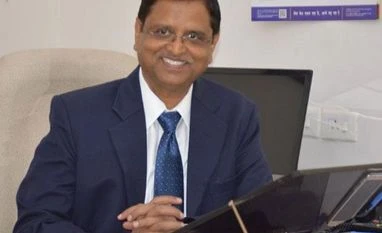The government, after Standard & Poor's affirmation of India's sovereign rating and outlook, said the rating agency was more cautious in its assessment than Moody's but agreed that fiscal consolidation was a concern in financial year 2017-18.
On Friday, S&P reiterated its BBB- rating and 'stable' outlook for India. Also, that despite two quarters of weaker-than-expected growth, the economy was forecast to grow robustly in 2018-2020 and foreign exchange reserves to continue rising. Also, that sizable fiscal deficits, a high net general government debt burden and low per capita income detracted from the credit profile.
"They (S&P) have the same two concerns Moody's had -- fiscal deficit and low per capita growth. So, my sense is that S&P chose to play a little cautious this year, though their assessment is also almost in line with Moody's and possibly is waiting for some time to upgrade," economic affairs secretary Subhash Garg told reporters after S&P's announcement.
Last week, Moody's Investors Service upgraded India's sovereign bond rating by a notch, the first time in 14 years, showing confidence in the Narendra Modi government's initiatives such as demonetisation, the goods and services tax (GST) and efforts to resolve the bad debt crisis of banks.
"We are not disappointed but the hope will be that S&P will take an overall view, and on all the factors where the story may be much clearer next year, even on the fiscal side, growth story... perhaps S&P will also be able to take a more favourable view," Garg said.
News agency Press Trust of India quoted Sanjeev Sanyal, principal economic advisor as saying the reiteration of the rating was "a bit unfair".
S&P said in its report that given the planned ramp-up in public sector-led infrastructure investment and persistent deficits, especially at the state level, fiscal consolidation will remain difficult. Garg said the assessment of state debt, "to my mind, does not appear very sound", as states are constrained constitutionally from exceeding prescribed borrowing limits.
Garg reiterated the views he had presented to Business Standard last week, when he'd said 2017-18 was not an ordinary year in that the Centre had implemented GST, bank recapitalisation and other measures, and the effects of demonetisation were still being felt. Hence, there would be some effect on the Centre's fiscal consolidation path.
"This is a year of transition, lot of reforms are being done, structural reforms, fundamental in nature, which have made their impact on growth, on revenues and others. But, the commitment of the government to stay on course on fiscal consolidation in the medium term is completely there. Transition may induce some temporary blip but we have to still make that assessment. Transition is challenging, definitely. How much, whether it is substantial, whether it's anything meaningful, for that, the assessment is still to be made," Garg said on Friday.
To read the full story, Subscribe Now at just Rs 249 a month
Already a subscriber? Log in
Subscribe To BS Premium
₹249
Renews automatically
₹1699₹1999
Opt for auto renewal and save Rs. 300 Renews automatically
₹1999
What you get on BS Premium?
-
Unlock 30+ premium stories daily hand-picked by our editors, across devices on browser and app.
-
Pick your 5 favourite companies, get a daily email with all news updates on them.
Full access to our intuitive epaper - clip, save, share articles from any device; newspaper archives from 2006.
Preferential invites to Business Standard events.
Curated newsletters on markets, personal finance, policy & politics, start-ups, technology, and more.
Need More Information - write to us at assist@bsmail.in
)